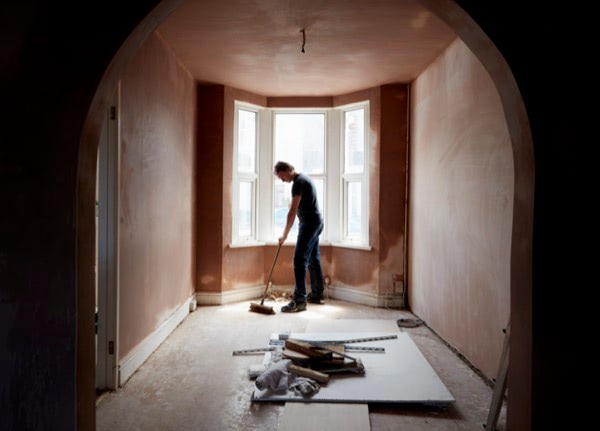Buying a property is a rewarding and challenging experience. Having a place to call your own is a good feeling, but of course, you need to go through the purchasing process first. While most people automatically think about move-in ready homes, there’s also the option of buying a fixer-upper. These property types are unique and have their own advantages and disadvantages. These are homes that require a lot of renovations to be liveable, meaning they are not move-in ready as is. It certainly takes a specific type of buyer to take on this kind of purchase. Could it be right for you? Here are the pros and cons of this investment.
The positives
Lower prices
One of the main reasons people buy a fixer-upper is the lower cost of the purchase. Since these homes have fallen into some sort of disrepair, they are less valuable, and therefore, buying a fixer-upper can often be cheaper. As the costs of move-in ready homes have been on the rise for a long time, and are steadily slipping out of reach for many buyers, a fixer-upper may be the more affordable option for some homeowners. The housing market is stressful, and lots of Canadians are struggling to buy a home. Buying a fixer-upper allows buyers to secure a home without breaking the bank, at least on the purchase itself.
Less competition
One of the reasons fixer-uppers are less expensive is because there is less demand for them. Of course, they are also objectively less valuable, but the fact that fewer other buyers will compete for them also makes them less pricey. Most buyers prefer move-in ready homes and aren’t prepared to commit to the process of actually fixing up a fixer-upper. If you have the motivation, you can enter the market with far less competition from other buyers thrown your way. This will help minimize stress levels and give you a better shot of being able to purchase the home you want.
Brand new and personalized
Another top reason people choose to buy a fixer-upper is so they can make it a unique space for themselves. When people move into a house, they like to decorate and accessorize the space to make it feel like a home. With a fixer-upper, you can customize every element of the house, from the materials of flooring and countertops right down to the final accessorizing touches. Any features you want to have in a home, you’ll be able to add in without trying to hunt for the home that meets your exact requirements. For people who have specific needs for their home, or who love creating their own space from scratch, buying a fixer-upper could be a good plan.
Passive income
If you plan to rent out the home you buy, then buying a fixer-upper could be a good way to earn passive income as a landlord. Restoring a home and renting it out will cost you money upfront, but over time, it can be a way to earn extra money. You will have landlord responsibilities, but if you’re prepared for that, buying a fixer-upper might be a good move for you. Keep in mind you will need to prove you have the finances to support this purchase without relying just on tenant income. However, this move can certainly earn you a good return on your investment.
The negatives
Securing financing
Now, let’s review the cons of buying a fixer-upper. Unfortunately, this alternative purchase often requires an alternative form of mortgage financing. Traditional lenders are unlikely to finance this purchase, because the home will not appraise for a high value. If lenders won’t finance more than the home’s value, this will leave you with a lot to owe in terms of renovations and restorations. Private lenders often come into play here. They finance fixer-upper purchases more often, allowing you to buy and restore the property. However, private lenders have much higher interest rates because they deal with riskier investments. You may need to prepare for high mortgage rates if you buy a fixer-upper.
Commitment to renovating
Buying a fixer-upper means you will have to do a lot of work to make it liveable. Renovations of this size will be time consuming and expensive. Even though you saved money on the purchase of the home itself, the cost of renovations can be extremely high when you consider everything that needs to be done. You will be looking at repairs for aesthetics like flooring and walls, and also internal things like heating, electricity, and plumbing. Plus, finishing touches like furniture, lighting, and appliances are important too. Not only will this be pricey, but it will be an exhausting process and you must be in it for the long haul.
Budgeting is tricky
Finally, it’s very hard to budget for the exact costs of buying a fixer-upper. You can get an inspection, and quotes for repairs for whatever it turns up, but it’s almost guaranteed that extra items will come up during the process that you didn’t expect. It’s hard to know exactly what will need fixes, and how pricey those repairs will be. Budgeting for unknown expenses is challenging. You will need to have a decent backup fund set up to take care of these unexpected costs.
Buying a fixer-upper can be a very rewarding experience, but it also has lots of challenges. Do your research and take time to consider your options before you decide to take on this project. You should also contact a mortgage broker to help you along the way. Brokers can make the process less complicated for you by assisting you with budgeting and getting a mortgage approval.
If you have any questions about your mortgage, get in touch with me!
